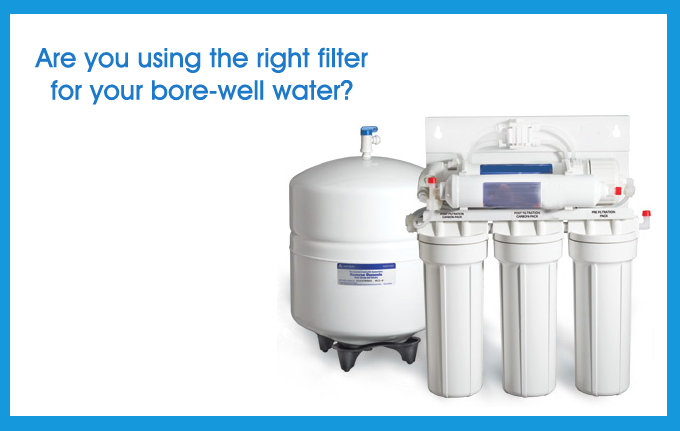Maximum Indian families still depend mainly on water collected from the wells or borewell.
Particularly in cities including Bangalore, Pune and a commercial hub like Mumbai with
areas like Dadar, Wadala, Matunga, etc. use borewell water for consumption. Usually,
the borewell water is considered safe for drinking, but a tinge of risk always lies beneath.
It is not at all 100% safe for drinking as it could be hard water and might hold
contaminants at some level. Most of the population in Mulund or Colaba depends
entirely on the borewell water due to the shortage of water supply collected from
the rivers and lakes. The water collected from the natural water bodies is healthy,
but there it is a very limited resource making it unavailable for most. Hence, people
living in certain areas have to depend on the water taken out from borewells.
Borewell water might include viruses, bacteria, and other heavy metals such as
lead, mercury, arsenic, fluoride, etc. Water becomes hard due to the presence of
dissolved magnesium and calcium. For this reason, borewell water has a slightly
sour taste. Although it might not cause any serious health hazard, some measures
may be taken to make it pure potable water.
The quality of the borewell water can get degraded at any point of time without any
prior notice to the consumers. The quality changes due to nature’s torment in the form
of heavy rainfall or prolonged drought conditions. As a result, the TDS of the water
borewell might go through alterations suddenly. People might be unaware of the
arsenic levels contaminated in the potable water. Hence, RO purifiers are necessary
for treatment of borewell water.

The Efficiency and Efficacy of RO Purifiers
The borewell water must be tested inefficient laboratories for complete analysis.
In case, arsenic or other harmful metals are found as contaminants, the borewell
should be cordoned off as the water from such a source is poisonous and unfit for
human consumption. Due to the increase in cases of arsenic contamination and
poisoning cases, scientists came up with various water treatment methods.
They further integrated their findings and knowledge to produce a modern day,
advanced range of RO purifiers. RO purifiers are the most efficient when it comes
to purifying borewell water. Reverse Osmosis is the most practical and the most
reliable method to get arsenic contaminated water purified for consumption
in areas like Nahur, Ghatkopar, Vikhrol and Kurla.
Reverse Osmosis helps to enhance the taste and color of the water.
It also makes sure that the water is free from foul smell as well (if any).
It also functions as the eliminator of the hardness in borewell water.
Even the RO + UV water purifiers may be used to remove heavy metals
, disease-causing microbes from borewell water in areas like Bhandup
and Masjid. The Reverse Osmosis and Ultraviolet purification process are
a highly recommended one.
The entire borewell water purification process can be carried out by
installing domestic water purifiers for use at homes. On the other
hand, in case the potable water available in the area is hard and is
causing severe damage to the plumbing, it is advised to install a
commercial water softener. It is a form of purifier that purifies
water for domestic use like bathing, washing, etc. Water from a
water softener cannot be used for drinking and cooking since
these devices are not capable of removing pathogens. Areas like
Vidyavihar, Masjid, Dadar, Parel, Chichpokali, and Sion are worst
hit when it comes to hard water.
Installing a purifier at home is a necessity these days.
The ever-degrading conditions of the environment are
known to the world, India is also feeling the beat down
from Mother Nature. Previously, purifiers were not efficient
enough as a result of which a lot of rejected water got
disposed of and wasted. The modern-day RO purifier is
more efficient as a result of which, the rejected water
gets filtered again and is also capable of automatically
cleaning itself.





Aqua Solution India